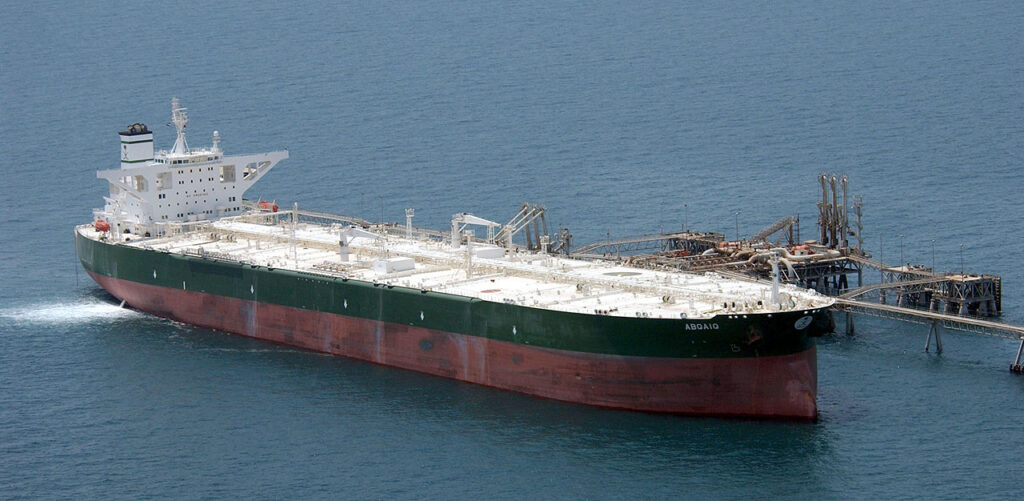The EU Commission wants to impose an oil embargo on Russia. A corresponding oil embargo could take effect as early as the turn of the year. In this way, the EU Commission wants to prevent Russia from continuing to collect money to finance the war in Ukraine. At the same time, the EU wants to increase the pressure on the Russian economy with the embargo. However, the idea that the Russian economy will collapse if the West stops buying oil and thus Russia stops taking in money is rather naive.
Effect of an oil embargo rather questionable
Politicians suggest that an oil embargo will leave Russia sitting on its oil and that, on the one hand, oil workers will be unemployed and, on the other, the Russian state will no longer have any revenue. However, this is rather wishful thinking.

Image: Photographer’s Mate 2nd Class Andrew M. Meyers, Public domain, via Wikimedia Commons
Oil embargo only leads to a price war
The oil market ultimately produces exactly as much oil as is consumed worldwide. No producing country in the world is in a position to increase its production volume enough to replace Russian production. Even the OPEC countries cannot do this in total. If the West withdraws from Russian oil, it will have to pay more to other producing countries until it becomes too expensive for existing buyers from other countries. Countries that do not support the boycott against Russia will then buy cheaper Russian oil. These states include energy-hungry states in Asia, such as China and India. In return, the boycotting states will pay more for oil from countries like Saudi Arabia and others. This merely redistributes the total amount of oil produced. The only thing that really changes is the price.
Russia will redirect trade flows
Since the majority of oil is transported by tankers, the logistical effort to redirect trade connections is not too great. The large oil tankers can eventually call at many ports in Asia. This should allow Russia to largely circumvent the boycott in a few weeks or months. The Russians may receive a little less money for their oil, but revenues will not drop significantly as a result. Only in the transitional phase could revenues be somewhat reduced. But the EU also foresees a corresponding transition phase. It would be naïve to believe that Russia will let this time pass idly.
Oil embargo will hurt EU more than Russia
It is reasonable to assume that an oil embargo could hurt the EU more than Russia. The higher prices that have to be paid for replacements inevitably increase inflation. An increase in energy costs ultimately affects all products and services. In this way, the European Union also weakens its own economic power vis-à-vis China on the world market. This is because China could obtain energy even more cheaply. Rising inflation also reduces purchasing power within the EU. This spiral could well end in a strong and long-lasting recession. Economics Minister Habeck has put it this way: “We will become poorer”.
